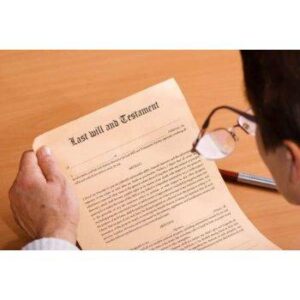Probate is a legal process that occurs after someone dies. In Pennsylvania, probate is handled by the Register of Wills, a county official who oversees the administration of a deceased person’s estate. Understanding probate in Pennsylvania can help you make informed decisions about estate planning and navigate the process if you are named as an executor or administrator of an estate.
What is Probate?
Probate is the legal process of proving a will in court and administering the estate of a deceased person according to the terms of their will or Pennsylvania intestacy laws if there is no will. The probate process involves identifying and valuing the decedent’s assets, paying debts and taxes, and distributing property to beneficiaries. The probate court oversees this process and ensures that the decedent’s wishes are carried out.
When is Probate Required in Pennsylvania?
In Pennsylvania, probate is required when a decedent’s assets are solely in their name and do not pass outside of probates, such as through a trust, joint ownership, or beneficiary designation. Probate is also required if the decedent had a will that needs to be validated and enforced.
If the value of the decedent’s probate assets is less than $50,000, Pennsylvania allows for a simplified probate process called small estate administration. This process is less expensive and time-consuming than formal probate and does not require court supervision.
Who is Involved in the Probate Process?
The probate process involves several key players, including the decedent’s executor or administrator, the Register of Wills, and any beneficiaries or heirs.
The executor is named in the will and is responsible for administering the estate, including managing assets, paying debts and taxes, and distributing property to beneficiaries. If there is no will, the court will appoint an administrator to serve in this role.
The Register of Wills is the county official responsible for overseeing probate in Pennsylvania. They are responsible for accepting and filing wills, appointing executors or administrators, and providing guidance to the estate’s representatives.
Beneficiaries are individuals or organizations named in the will or designated as heirs under Pennsylvania law. They are entitled to receive property or assets from the estate as directed by the will or intestacy laws.
How Long Does Probate Take in Pennsylvania?
The length of the probate process in Pennsylvania depends on several factors, including the complexity of the estate, the amount of debt owed by the estate, and any disputes that arise among beneficiaries or heirs. In general, the probate process can take anywhere from six months to two years or more.
During the probate process, the executor or administrator must locate and value all of the decedent’s assets, pay all debts and taxes owed by the estate, and distribute property to beneficiaries or heirs according to the will or intestacy laws. The probate court oversees this process and ensures that everything is done according to the law and the decedent’s wishes.
Some additional points to consider when understanding probate in Pennsylvania include the costs involved and the importance of having a will.
Probate can be costly, with fees assessed by the Register of Wills and additional expenses such as legal fees, appraiser fees, and taxes. However, the costs can vary widely depending on the complexity of the estate and the extent of legal challenges. It is important to consult with a probate attorney who can help you understand the potential costs involved in the probate process and explore options to minimize them.
Having a will is essential in Pennsylvania to ensure that your wishes are carried out after your death. Without a will, your assets will be distributed according to Pennsylvania’s intestacy laws, which may not align with your wishes. By creating a will, you can name an executor to manage your estate, specify how your assets should be distributed, and designate guardians for minor children. Additionally, having a will can help simplify the probate process and reduce the likelihood of disputes among beneficiaries or heirs.
Understanding probate in Pennsylvania can help you navigate the legal process of administering an estate after a loved one’s death. By working with an experienced probate attorney, you can ensure that everything is done correctly and minimize costs and legal challenges. Additionally, having a will in place can provide peace of mind that your wishes will be carried out and your loved ones will be taken care of.
As a law firm with extensive experience in estate planning, probate, and trust administration in Pennsylvania, we at Gibson & Perkins, PC can help you with understanding probate cases in Pennsylvania in several ways. We can provide guidance and advice on probate in Pennsylvania, including the legal requirements, the roles of different parties involved, and the potential costs and timeframes involved.
We can also draft wills and other estate planning documents that will help ensure that your wishes are carried out and that the probate process is as smooth and efficient as possible. In addition, if you are named as an executor or administrator of an estate, we can represent you and provide guidance on your duties and responsibilities, as well as help you navigate the probate process and minimize the potential for legal challenges.
We can assist with estate administration, including identifying and valuing assets, paying debts and taxes, and distributing property to beneficiaries. We can also help with the sale of real estate and other assets if necessary. In the event of a dispute among beneficiaries or heirs, we can provide legal representation and help resolve the matter in the most efficient and cost-effective manner possible.
We can help you understand and navigate probate cases in Pennsylvania by providing guidance, drafting estate planning documents, representing executors and administrators, assisting with estate administration, and handling probate disputes. With our extensive experience and personalized approach, we can help you achieve your estate planning goals and ensure that your loved ones are taken care of after your death.
